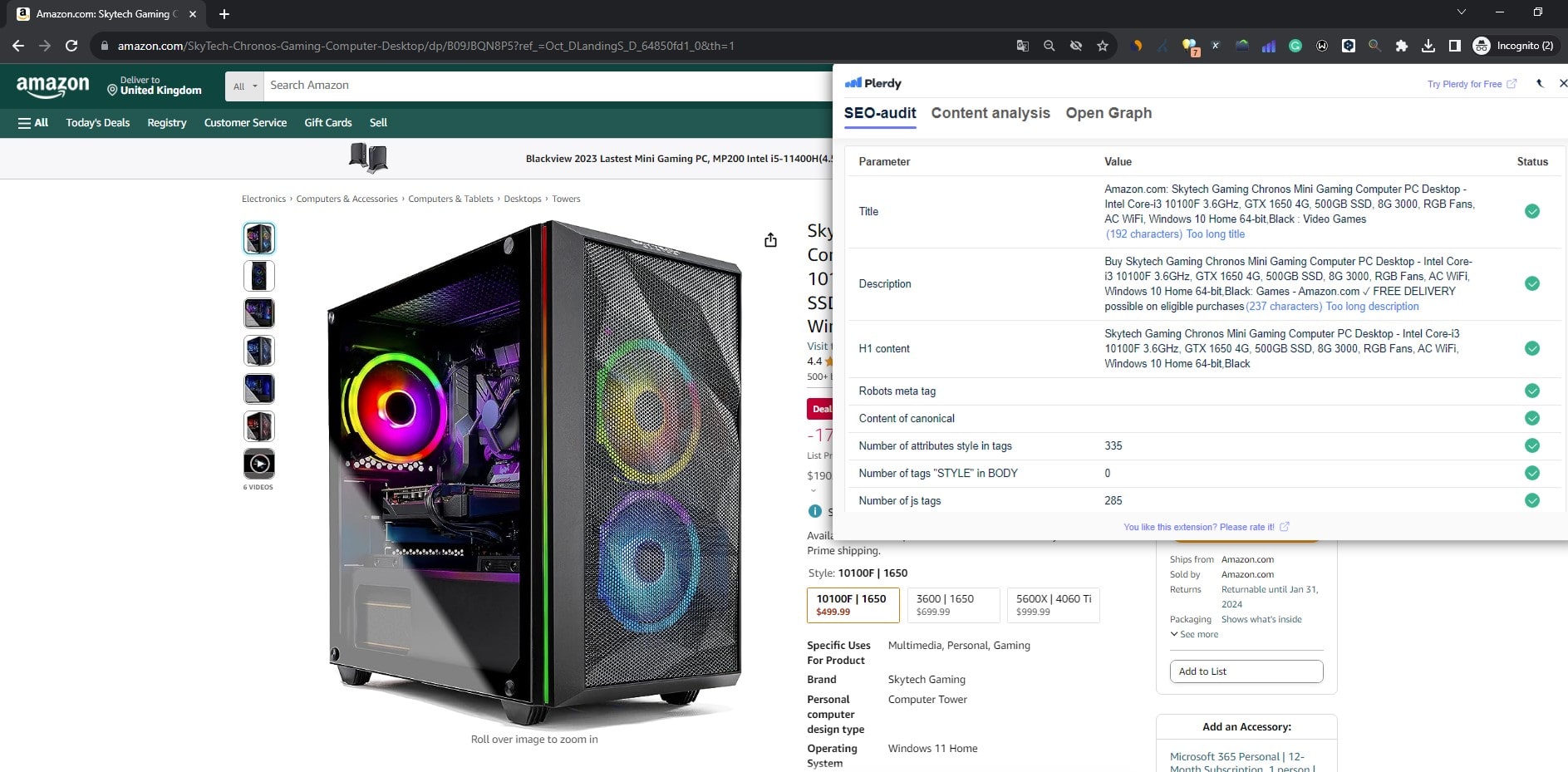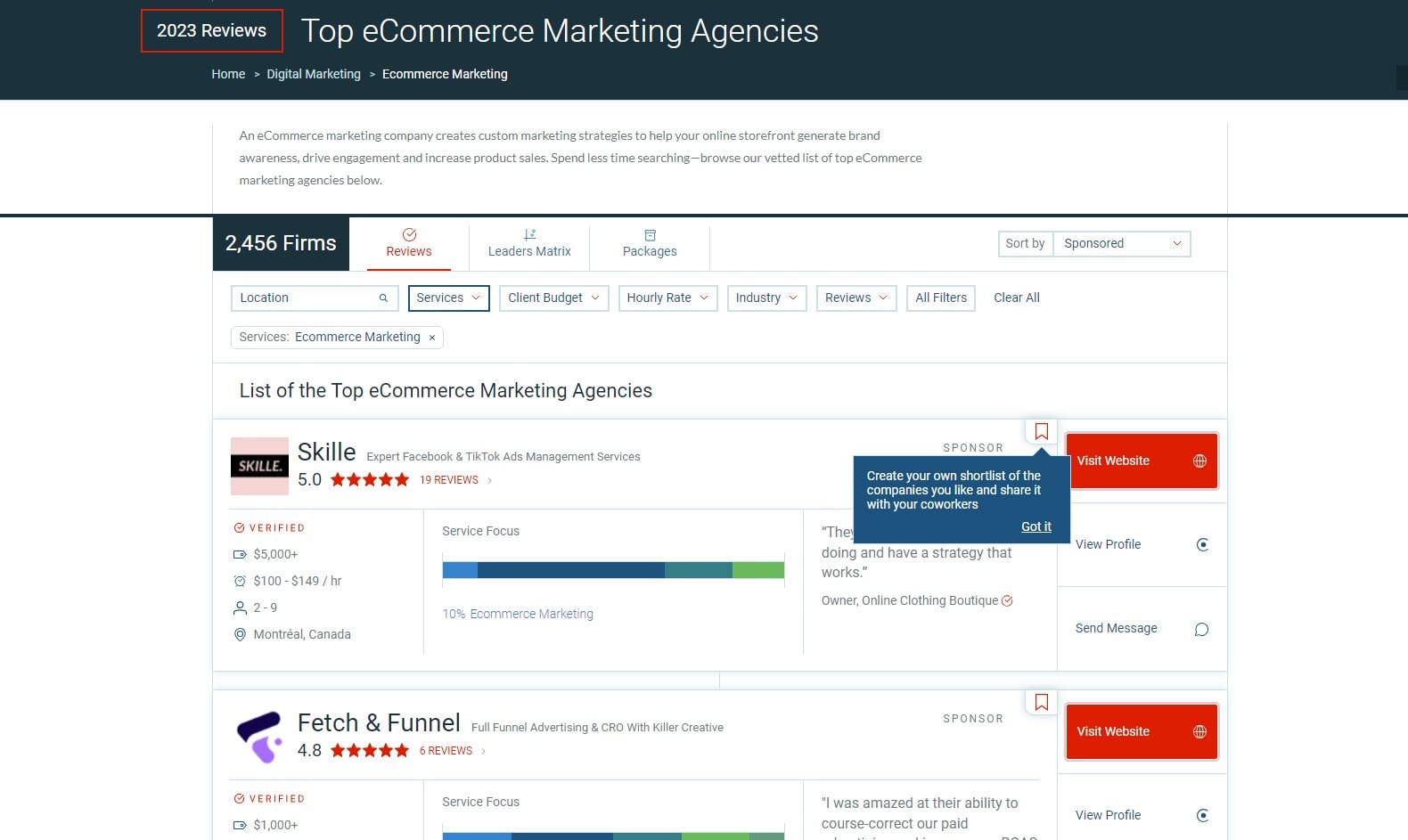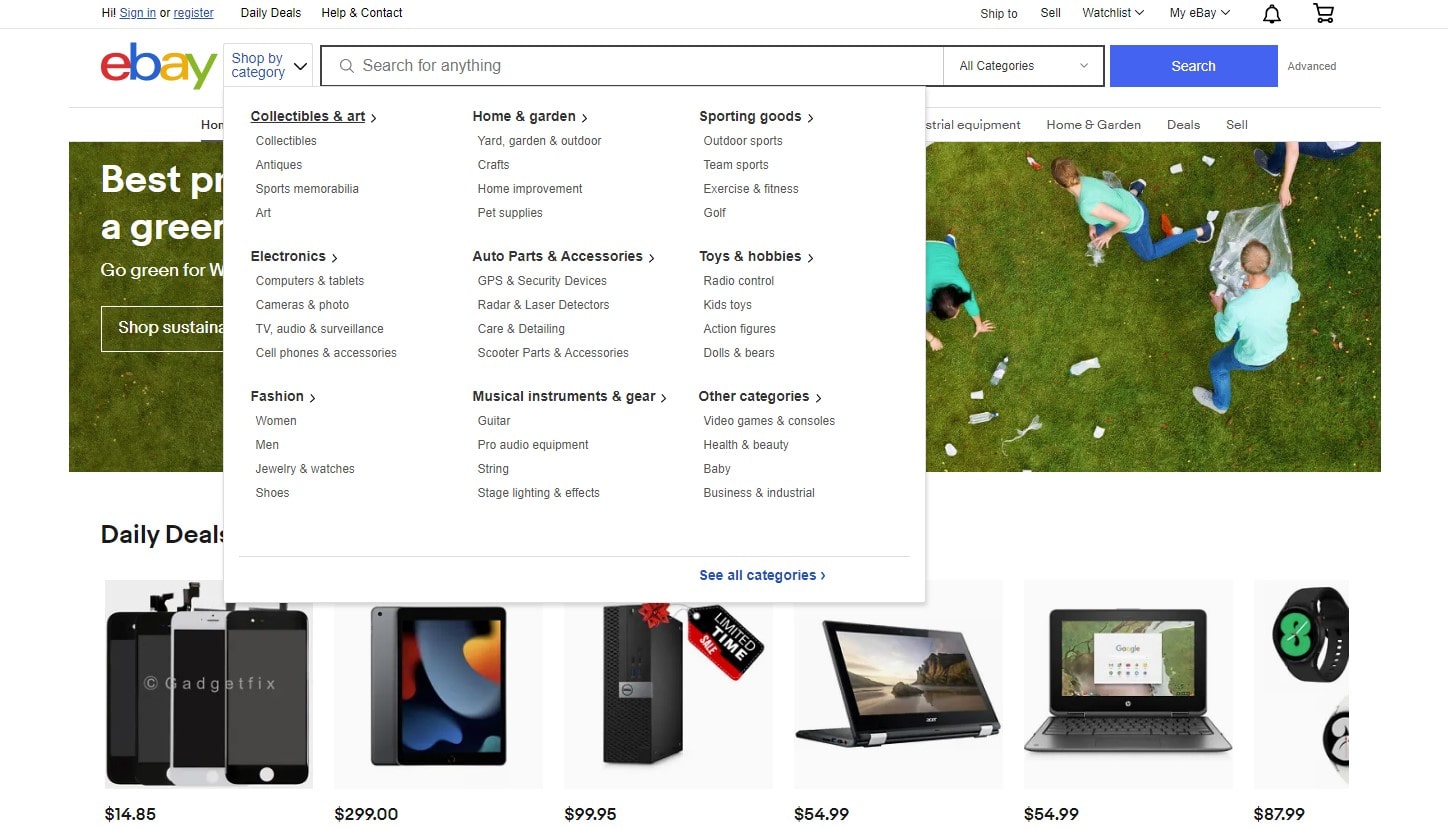In today’s rapidly evolving digital marketplace, the quest for the most effective ecommerce marketing strategies is more critical than ever. Are you struggling to increase online sales or stand out in a competitive digital landscape? In “15 Successful Ecommerce Marketing Strategies to Try,” proven methods help companies prosper online. Social media, SEO, email marketing, and client engagement will be covered. Each strategy expands and boosts your web business. Online marketing strategies are provided. Plerdy can improve your ecommerce approach and give advantage. Explore ecommerce with me!

Overview of Ecommerce Marketing
In the bustling digital marketplace, a well-orchestrated ecommerce marketing strategy is your ticket to outshining competitors. Picture this: you’re navigating a vast ocean of online stores, each vying for attention. What distinguishes you? An effective mix of innovative marketing strategies that resonate with your audience.
Take, for example, the approach of a niche boutique specializing in eco-friendly apparel. Ecommerce SEO helps them appear when eco-conscious shoppers search for sustainable apparel. They then use effective social media methods to engage their audience with fascinating content and influencer collaborations.
Here’s a snapshot of key strategies:
- Mastering ecommerce SEO to boost search rankings.
- Crafting compelling content strategies to engage and inform.
- Utilizing social media platforms for targeted outreach.
- Implementing PPC campaigns for immediate visibility.
- Adopting ecommerce analytics to fine-tune strategies.
Integrating these aspects gives firms a unified and dynamic online appearance. More than selling products, it’s about creating a compelling story and generating returning customers. Every strategy works together to help your ecommerce business stand out online.
Ecommerce SEO and Content Strategies

Ecommerce SEO and Content Strategies create a colorful online retail tapestry that attracts and retains discerning shoppers. Content that engages and ranks high in search engines is the art. Consider an online gourmet coffee shop. When coffee aficionados search for “artisanal coffee beans” and “single-origin espresso,” their product descriptions score high. Their unique coffee culture and brewing site draws enthusiasts and casual readers.
Effective strategies include:
- Integrating relevant keywords into product titles and descriptions.
- Creating informative and engaging blog posts that echo your brand’s voice.
- Leveraging metadata for enhanced visibility in search results.
- Utilizing alt-text in images for a comprehensive SEO approach.
Each element plays its part. Keywords help people find your products, while engaging content creates brand loyalty and trust. Each content piece improves SEO, and higher search rankings increase traffic to rich, engaging material.
For specialty enterprises like handcrafted jewelry or ecological skincare, this method is crucial. They offer tales, educate their audience, and form a community around shared values and interests while selling things. Ecommerce players set sails to catch the wind by expertly integrating SEO and content, setting a route for long-term profitability and client engagement.
Ecommerce PPC and Advertising
Ecommerce PPC and Advertising stand as the high-octane fuel driving online stores towards unparalleled visibility and sales. In this bustling digital bazaar, where every click can pivot a business towards success, mastering PPC is akin to striking gold. Imagine a boutique specializing in vintage watches – they harness the power of targeted Google Ads, cleverly crafting campaigns around keywords like “vintage luxury watches” and “antique watch collectors”. This laser-focused approach places them directly in front of potential buyers, maximizing their ad spend efficiency.
Key components of a successful Ecommerce PPC strategy include:
- Writing effective, audience-targeted ads.
- Choosing precise keywords for Google Ads to ensure relevant visibility.
- Utilizing retargeting techniques to re-engage interested visitors.
- Analyzing data to continuously refine and optimize ad performance.
For niche markets, such as handmade organic skincare products, PPC allows sellers to reach specific demographics searching for “natural skincare solutions” or “handmade organic creams”. By deploying Facebook ecommerce marketing, these brands can showcase their unique products through visually appealing ads, directly reaching their audience on social platforms where they spend most of their time.
Through well-executed PPC campaigns, businesses elevate their products above the digital noise, ensuring they’re not just seen but seen by the right eyes. This strategic visibility is the cornerstone of driving sales and building brand recognition. As each click translates into potential revenue, PPC becomes more than just a marketing tool; it’s a vital component in the ecommerce ecosystem, dynamically linking products to consumers who are actively seeking them out.
Influencer Marketing in Ecommerce

Ecommerce is thriving, and influencer marketing smoothly connects firms with their intended audiences. Influencers’ authenticity and relatability make them credible voices guiding customer choices in this modern marketing marvel. For example, a fitness apparel brand might partner with well-known fitness enthusiasts on Instagram, leveraging their influence to showcase their products in action. Popular with followers, these collaborations boost revenue.
Essential elements of effective influencer marketing in ecommerce include:
- Partnering with influencers whose followers align with your target market.
- Creating genuine, relatable content that speaks to the audience’s interests.
- Utilizing a mix of influencers, from micro to macro, for broader reach.
- Measuring campaign success through engagement rates and sales conversions.
Influencers can boost brand growth by promoting organic skincare’s natural ingredients. These partnerships increase ecommerce exposure and customer engagement. Influencer marketing, when done well, transforms influencers into brand ambassadors and followers into customers.
Digital Marketing for Ecommerce
In the digital marketplace, where competition is as fierce as the speed of a click, digital marketing for ecommerce stands as the cornerstone of success. It’s a multifaceted beast, constantly evolving, yet ever so crucial in connecting products with potential buyers. Consider a tiny artisanal coffee firm that uses social media to create awareness with appealing postings and interesting bean-origin stories.
Key strategies in digital marketing for ecommerce include:
- Utilizing social media for brand recognition and community.Writing audience-relevant ad copy.
- Crafting email marketing campaigns that nurture leads and boost customer loyalty.
- Utilizing SEO to enhance online visibility and drive organic traffic.
- Implementing retargeting ads to re-engage visitors and increase conversions.
In niche markets, like eco-friendly home goods, digital marketing transcends mere promotion—it educates and creates a narrative. Through blogs and how-to manuals, these brands become thought leaders. Creating a digital presence that adds value, engages customers, and turns casual surfers into brand advocates is ecommerce digital marketing. Ecommerce success in the digital age depends on this holistic approach.
Ecommerce Marketing for Small Businesses
Effective marketing unlocks huge growth possibilities for small firms entering ecommerce. It’s about carefully establishing your business in a congested market, not merely having an internet presence. Take a local artisan soap maker. They reach handcrafted, natural product lovers with targeted social media ads, creating a niche market for their unique items.
Crucial aspects of ecommerce marketing for small businesses include:
- Creating an audience-friendly brand.
- Engaging customers and building brand community on social media.
- Implementing targeted email marketing campaigns to nurture leads and drive sales.
- Offering promotions and discounts strategically to incentivize purchases and loyalty.
Storytelling works well in handmade goods and organic food. Sharing product stories and connecting with customers personally helps these firms succeed. This strategy turns customers into brand champions who naturally grow the business by sharing their experiences.
Ecommerce marketing for small businesses is a dialog with customers to build relationships and loyalty. Even tiny firms may succeed in ecommerce with innovation, sincerity, and strategic preparation.
Social Media Strategies for Ecommerce

Social media techniques boost brand awareness and consumer interaction in the ecommerce marketplace. Picture this: a boutique online store specializing in eco-friendly apparel, harnessing the power of Instagram’s visually driven platform. Their ecologically concerned audience responds to their stories, which turn followers into consumers.
Key tactics in social media strategies for ecommerce include:
- Curating visually appealing content that aligns with brand aesthetics and values.
- Engaging with customers through comments, polls, and direct messages.
- Leveraging influencer partnerships to expand reach and credibility.
- Utilizing platform-specific features like Instagram Shopping or Facebook Marketplace.
In niche markets, like gourmet artisanal foods, social media becomes an interactive tasting session. Businesses add mouthwatering photos, behind-the-scenes footage and welcome feedback to create a sensory experience.
Ecommerce social media is about building a community and telling a compelling story. Every network offers distinct opportunity to engage and convert, from real-time Twitter discussions to intoxicating Pinterest boards. This mix of planned content generation, active interaction, and platform strengths powers social media ecommerce growth. Ecommerce enterprises may increase their online presence and interact with their audience by using these tactics, turning social media networks into busy markets full with opportunity.
Ecommerce Marketing Platforms and Tools

Ecommerce marketing platforms and technologies are hidden heroes, helping online businesses succeed in the ever-changing world. Picture a modest, independent bookstore. Shopify makes managing their online inventory easy, and Google Analytics informs their marketing strategies by revealing buyer behavior.
Essential ecommerce marketing platforms and tools include:
- Shopify for intuitive ecommerce store management.
- Google Analytics for insightful customer data and behavior tracking.
- Mailchimp for personalized and automated email marketing campaigns.
- Hootsuite for managing and scheduling social media content across various platforms.
Artisanal food and jewelry markets depend on these tools. They let companies target unique consumers with targeted campaigns.
For instance, a handcrafted jewelry brand might use Instagram’s shopping feature, allowing customers to purchase directly from their posts, bridging the gap between discovery and purchase.
These platforms and technologies let ecommerce firms communicate their story, interact with their audience, and establish their brand in a changing digital landscape. With the appropriate technology and strategy, even modest ecommerce businesses can compete globally and convert their products and services into hot commodities.
Omnichannel and Multichannel Ecommerce Strategies
In the realm of ecommerce, mastering omnichannel and multichannel strategies is akin to conducting a symphony – each channel plays a distinct part, yet all harmonize to create a seamless shopping experience. Consider a boutique home decor store: they blend their physical storefront’s charm with an online shop, social media channels, and an email marketing campaign, each offering a unique touchpoint for customers.
Key strategies in omnichannel and multichannel ecommerce include:
- Integrating in-store and online shopping experiences to ensure consistency.
- Using social media for product promotion and customer involvement.
- Employing email marketing to provide personalized offers and product updates.
- Utilizing data analytics to understand customer preferences and tailor experiences across all channels.
For businesses specializing in niche products, like organic skincare, these strategies allow for a holistic approach to customer interaction. They can engage customers with storytelling on Instagram, offer expert advice in-store, and send follow-up care tips via email, crafting a journey that feels personal and connected at every step.
Omnichannel and multichannel ecommerce strategies establish a network of touchpoints that envelope and engage customers, turning every connection into an opportunity to build loyalty and drive sales. In this interconnected commerce landscape, businesses that adeptly maneuver through various channels stand out, offering customers a rich, cohesive shopping experience that resonates long after the purchase.
Ecommerce Marketing Agencies and Companies

In the dynamic world of online retail, ecommerce marketing agencies and companies are the architects behind many success stories. Businesses, big and small, rely on these entities to turn clicks into consumers. Consider an eco-friendly startup. A top ecommerce marketing agency guides them via SEO and social media campaigns to reach the proper audience with their green message.
Vital roles of ecommerce marketing agencies include:
- Crafting bespoke marketing strategies tailored to each business’s unique needs.
- Implementing cutting-edge SEO techniques to boost online visibility.
- Managing social media presence to engage and expand the customer base.
- Utilizing data analytics to refine marketing tactics and increase ROI.
Niche markets like exquisite handcrafted furniture require these firms even more. They target certain audiences with targeted ads highlighting product uniqueness and craftsmanship.
Ecommerce marketing agencies and companies don’t just provide services; they partner with businesses to navigate the ever-changing digital landscape. In an online environment of chances and challenges, they advance ecommerce enterprises. Their expertise can help niche products sell on the large online marketplace.
Ecommerce Sales and Product Strategies
Product strategy and ecommerce sales are the foundation of online business success in the digital age. These strategies are not just about moving inventory; they’re about creating a shopping experience that resonates with consumers. Let’s say there’s an online boutique specializing in handmade ceramics. Their strategy? They focus on storytelling, detailing the artisanal process in product descriptions and through captivating visuals, thereby forging an emotional connection with the customer.
Key elements of effective ecommerce sales and product strategies include:
- Crafting compelling product narratives that highlight uniqueness and value.
- Implementing dynamic pricing strategies to stay competitive while maximizing profits.
- Utilizing upselling and cross-selling techniques to enhance average order value.
- Personalising product recommendations based on user behaviour.
For niche segments like eco-friendly home goods, these strategies take a distinct turn. Here, it’s all about emphasizing sustainability, both in the product design and in the marketing approach, appealing to environmentally conscious consumers.
Ecommerce sales and product strategies are about understanding the pulse of the market and aligning products to meet those demands. It’s a blend of art and science – where data-driven insights meet creative marketing – to ensure that every product not only meets the eye but also captivates the heart of the consumer. A product that sells or stays on the digital shelf depends on its strategy in this digital age of choice.
Ecommerce Retention and Customer Acquisition

A successful ecommerce firm relies on client acquisition and retention. Each move in the ballet of first impressions and lasting connections is meant to captivate. For example, a boutique online tea shop uses targeted ads to attract tea enthusiasts, then employs a subscription model to keep them coming back for more.
Crucial strategies for ecommerce retention and customer acquisition include:
- Leveraging targeted advertising to reach potential customers.
- Offering first-time purchase discounts to incentivize buying.
- Implementing loyalty programs to encourage repeat purchases.
- Utilizing personalized email marketing to maintain engagement.
For specialist markets like handcrafted chocolates, these methods create a sense of exclusivity and belonging. The key lies in making each customer feel special, whether they’re clicking ‘buy’ for the first time or are returning customers.
Ecommerce retention and customer acquisition are about creating a balance – attracting new customers while ensuring existing ones feel valued. It’s about understanding customer needs, responding to them, and creating an ecommerce experience that’s as rewarding on the hundredth visit as it is on the first. This strategy boosts revenue and fosters consumer loyalty, the key to ecommerce success.
Ecommerce Marketing for Specific Industries
In the kaleidoscope of ecommerce, marketing for specific industries demands a keen understanding of niche markets. Tailored strategies are the secret sauce for businesses like a gourmet vegan snack brand, where general ecommerce tactics are refined to resonate with health-conscious consumers.
Key focuses for industry-specific ecommerce marketing include:
- Pinpointing unique selling propositions that cater to the specific audience.
- Crafting content that speaks directly to the niche market’s interests and needs.
- Employing social media strategies targeting platforms where the niche audience is most active.
- Utilizing influencer partnerships within the niche to enhance credibility and reach.
For example, in the luxury skincare industry, marketing campaigns are often centered around the quality and exclusivity of the products, coupled with influencer testimonials and lush visuals.
Creating a brand narrative that matches a target audience’s beliefs and lifestyles is the goal of ecommerce marketing for specific industries. It requires strategy and creativity to match every marketing move to the industry’s rhythm.
Ecommerce Launch and Campaign Strategies
Launching an ecommerce platform is like unveiling a digital storefront to the world, where first impressions and strategic outreach are key. For a successful launch, one must blend creativity with analytics, ensuring that the brand story reaches the right audience at the right time.
Essential elements of ecommerce launch and campaign strategies include:
- Building anticipation through pre-launch email marketing campaigns.
- Utilizing social media to create buzz and engage with potential customers.
- Implementing targeted ads to drive traffic to the new ecommerce site.
- Analyzing initial customer interactions for data-driven adjustments.
Take, for instance, a boutique organic tea brand. Prior to launch, they tease their range on social media, stir curiosity with behind-the-scenes content, and engage with tea enthusiasts. Post-launch, they analyze website traffic and customer feedback to refine their marketing tactics and product offerings.
Ecommerce launch and campaign strategies involve telling a captivating story that keeps customers coming back. It’s a delicate balance of storytelling, marketing acumen, and data analysis, all working in harmony to debut an ecommerce venture that not only captures attention but also sustains interest.
Ecommerce Marketing and Advertising Tactics

Online business success depends on ecommerce marketing and advertising. They use art and science to highlight your products beyond the noise.
Key tactics include:
- Creating visually captivating social media ads that tell your brand’s story.
- Leveraging email marketing for personalized promotions and new product launches.
- Using SEO to enhance product visibility and drive organic traffic.
- Implementing retargeting campaigns to re-engage visitors who didn’t purchase.
These strategies stress sustainability to attract eco-conscious consumers to eco-friendly apparel. Every click matters when connecting with customers through beliefs and interests.
Ecommerce Strategy and Planning
Ecommerce strategy and planning are akin to navigating a ship through the ever-changing seas of the digital marketplace. Success hinges on a well-charted course and an adaptable approach.
Key components include:
- Analyzing market trends to inform product selection and pricing strategies.
- Creating an SEO, social media, and email marketing plan.
- Planning logistics and inventory management to ensure efficient order fulfillment.
- Establishing clear goals and metrics for tracking progress and ROI.
For a niche like artisanal home decor, the focus might be on creating unique, SEO-rich product descriptions and leveraging visually-driven platforms like Instagram and Pinterest.
Ecommerce strategy and planning involve building a firm foundation and adapting to market changes. Insight, creativity, and data-driven decision-making promote online business growth and success.
Conclusion
As we wrap up this exploration of “15 Successful Ecommerce Marketing Strategies to Try,” it’s clear that the landscape of online marketing is both vast and dynamic. You have a toolkit full of ways to improve your ecommerce game, from using social media to SEO optimization to personalizing consumer experiences to email marketing. Remember that ecommerce marketing success depends on customizing and refining these methods to your business goals and client preferences. Now, with this knowledge, you can grow your online business. Revisit these tactics, experiment with them, and watch as your online store flourishes. Your journey towards ecommerce excellence begins now – empowered, informed, and ready to conquer the digital market
